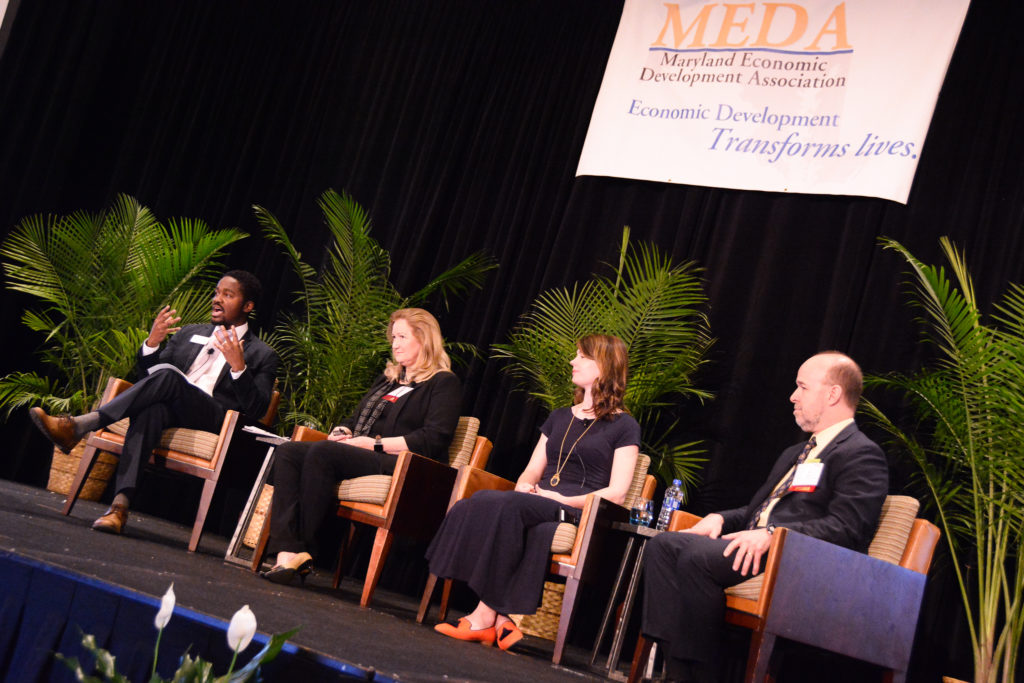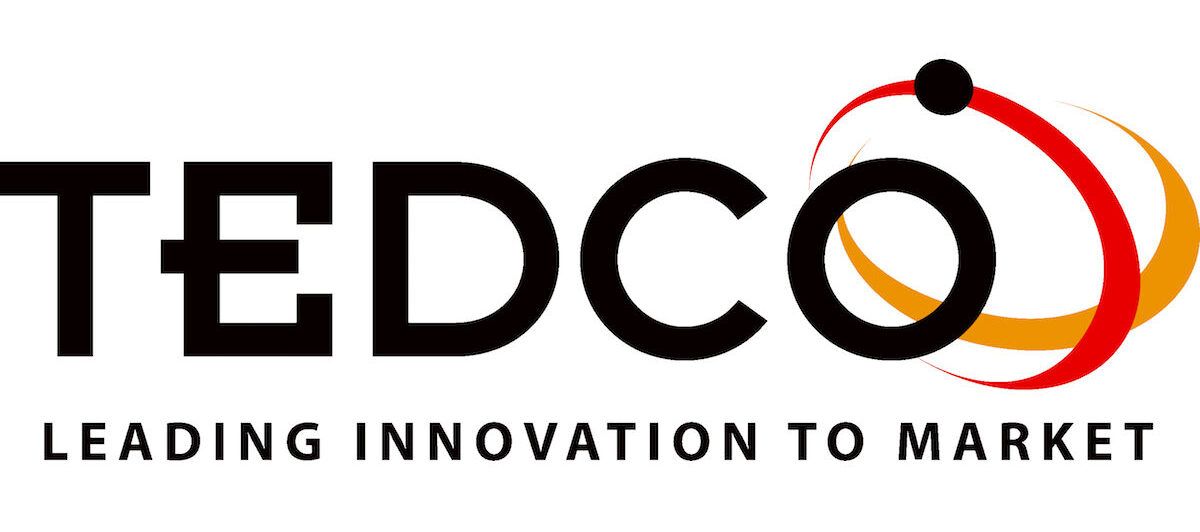Annual Conf Recap: “The Future of Storytelling:” Challenges and Opportunities for Economic Development in the Digital Age

From left to right: Sam Shoge, Economic Development Coordinator, Talbot County Economic Development & Tourism (moderator); Anne Balduzzi, Director, Advisory Services, TEDCO; Katie Stover, Vice President, High Rock Studios; Andy Levine, Chairman, Development Counsellors International
They say you save the best for last, and the final MEDA conference panel certainly did not disappoint. “The Future of Storytelling” featured an engaging conversation about how rapid advancements in technology is changing the game in economic development, and how communities can leverage different tools to attract investment.
Anne led off with a discussion about artificial intelligence (the capability of a machine to imitate intelligent human behavior) and how AI has come so far due to the flow of data that helps machines recognize patterns. She asserted that the emergence of predictive analytics will ultimately lead to more innovation, growth, and disruption than the Industrial Revolution, electricity, and the internet combined. As this disruption occurs, there are are a number of implications – more jobs will become automated while new types of jobs that don’t yet exist will emerge.
Katie’s presentation dug deeper into one particular area of technology – virtual reality. Through VR, communities can show more and more digital, vivid content on a platform that can be accessed remotely. From 360 degree video to interactive video content, VR can help prospects better visualize opportunities and can provide an outlet that supplements, or even surpasses, traditional two-dimensional media.
Andy explained how the emergence of the data analytics and technology Anne and Katie talked about have implications for economic developers, particularly when it comes to site selection. The emergence of virtual site tours can allow companies to arrive at shortlists early in the process and facilitate site conceptualization, and the increased use of predictive analytics help measure impacts on traffic and the built environment. Andy also discussed how economic development organizations can leverage technological shifts by creating “websites of the future” that provide better service to the user and more information to the organization. To increase their success, organizations can focus on building their sites as lead generation engines, sharing customized content based on the geographic location of the website visitor, and shifting their marketing towards targeted talent attraction.
Taking all these pieces together, it is clear that advances in technology present a tremendous opportunity for economic development organizations to tell their stories. From targeted advertising and creative branding to predictive analytics and site selection, the new wave of technology that is emerging is making data and creative content exponentially more accessible, and elevating expectations about what platforms EDOs should be using. Such progress offers communities both the challenge and opportunity not only to use these tools to tell their stories, but also to determine whether new chapters need to be written to remain competitive.



